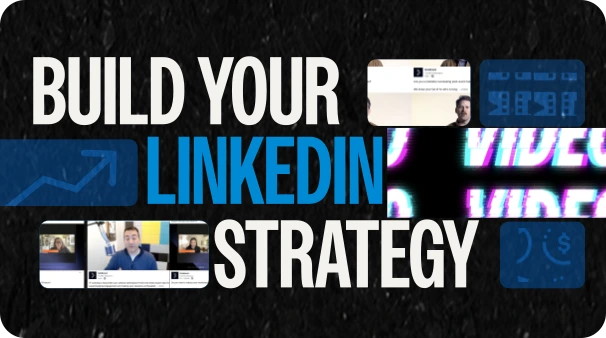What Do Demand Gen Marketers Make? Findings From the 2024 Compensation Report (Plus, Tips on How to Negotiate!)

Table of Contents
Maximize Your Marketing ROI
Join 10,000 other marketers already getting the best tips on running engaging events that boost pipeline and create raving fans.
Hello, demand gen marketers! If you're here, we're guessing you're more than a little curious about what other folks in similar roles are currently earning—and you're in luck because we've got some answers for you!
We just released our first-ever Demand Generation Compensation Report*, and it's chock-full of interesting insights.
*This report was previously called the Event Marketing Compensation Report, but we've expanded its scope as we recognize that many event marketers work in Demand Generation within their orgs.
Our original goal in creating this report was to shed more light on industry standards around pay and compensation. Demand generation marketing is still a relatively newish career in the grand scheme of things, and information around pay in any industry can be somewhat opaque.
Of course, some of this data is already available through sites like Glassdoor and Salary.com. But outside of these walled (and potentially biased) sites, we couldn’t find many reliable sources on what demand gen marketers make, as well as other benefits they receive and different trends that impact their compensation.
So, we decided to create our own report! For the last three years, with the help of demand gen and event marketers across the world, we've been increasing transparency so that everyone in the industry knows what a fair wage should look like.
![[object Object]](https://cdn.sanity.io/images/2939l4aj/production/6739dce1d5eeda2b1ffdb1f8c00a30dc32d75429-1200x350.png?w=800)
About the report
This year, we heard from 229 demand gen and event marketers across the United States, Europe, Canada, Asia, and Australia. This was the first time we had respondents weigh in from outside of the States, which was exciting to see!
We also had more of a gender mix respond this year than in years past, but the majority of respondents still self-identified as women (66.4%).
And even with our global reach, most of the responses came in from the U.S., primarily from the states of California, Texas, and Massachusetts.
We had respondents across all levels of seniority and experience—from brand-new coordinators to seasoned VPs. We also heard from people in many different industries, with the largest being Computer Software/IT.
If you’re reading this and didn’t get a chance to participate, we hope you’ll consider contributing next year!
Okay, now let's talk about our findings from this year's report, as well as some tips on how to negotiate for the compensation package you deserve!
Average demand generation marketing salary in 2024
First, we'll answer the question you probably came here for: How much do demand gen marketers make right now?
The average base salary for marketers has increased slightly at $126,402.
This isn't a huge increase from last year's average of $125,224, but we'll take it!
Also—it's one thing to look at numbers on paper, but remember that salary is just one data point. To understand what salary means in the grander scheme of things, you have to take a more holistic view, like we do in the full report.
💰 Dig into the data—check out the full version of our Compensation Report.
3 trends that stuck out this year
We were very intrigued by some of this year's findings. Read on for three insights that made us pause!
The remote work advantage
This was a new finding this year, and one that definitely raised some eyebrows—it appears that working from home can dramatically increase your earning potential, compared to in-person roles.
![[object Object]](https://cdn.sanity.io/images/2939l4aj/production/45eb8744dec0948f0fa075349f606f3ca7024e8f-1200x691.png?w=800)
According to these numbers, marketers who work remotely earn almost 104% more than those who don't. Pretty staggering, right?!
Hybrid roles, meanwhile, fell in the middle but are still clocking in at almost double what in-office workers command.
It might take less time than before to become a VP
Last year, our data showed that it took 17-20 years to land a VP experience—but this year the numbers were very different.
![[object Object]](https://cdn.sanity.io/images/2939l4aj/production/50c40541cd4f60be55587f03201d155b2a9ee3ab-1200x691.png?w=800)
Note: The years of experience you see above each title includes only marketing-related roles.
On average, right now it takes just 15 years of marketing experience to land a VP title.
This might be a positive thing, in that companies are valuing a candidate's holistic background =and not just the hardline numbers around years of experience. If demand gen marketing is your passion, we urge you to keep going. The industry seems to be shifting every year, and we believe there's a seat for you at the VP table!
Marketers who act as managers make more money
This was another new finding for 2024 and one that makes sense to us. Marketers who own the event/marketing budget appear to make significantly more money, coming in at a total compensation package of $153,421 versus $125,744 for the marketers who aren't responsible for budget.
![[object Object]](https://cdn.sanity.io/images/2939l4aj/production/13a750e2f696e722b9ebf60f823cae6c781bbce4-1200x691.png?w=800)
Similarly, marketers who manage other employees receive significantly higher compensation, both in terms of base and total compensation. People managers earned $176,529 in total compensation, while individual contributors reported about $110,063 in total compensation.
![[object Object]](https://cdn.sanity.io/images/2939l4aj/production/91694cc497311d63b71ad04ea22c6daa2a1f2909-1200x691.png?w=800)
These are interesting findings, and we have to say: We're glad to see that with added responsibility comes added pay! (We should've been poets.)
How to improve your total compensation
Alright, so you’ve seen the average demand gen marketing salary, and you might have even skimmed the full report. Yet, you’re still not sure whether your salary or compensation package are fair.
Evaluating what you're paid can be complicated, and we totally get that. Here are some guidelines to use when negotiating for more in your current (or next) positions:
Understanding total compensation 💸
First up: It’s essential that you understand your total compensation.
Total Compensation = Base Salary + Incentive and Bonus Pay + Benefits
As you can see, compensation consists of so much more than just your base salary. Incentives, bonus pay, and benefits like PTO and health insurance are all part of the equation.
Benefits in particular are an extensive category where there can be a lot of room for negotiation. Outside of insurance, which may be less flexible, what are other perks that you enjoy or that you want? This can help you push for a higher total compensation even in situations where salary and health insurance are locked in.
When brainstorming benefits, think about things like:
- Paid maternity or paternity leave
- A remote-friendly role
- Flexible work hours
- Additional PTO days
- Profit-sharing or performance bonuses
- Money for professional development
If you’re looking for a benchmark or starting point, our 2024 report revealed that Event Marketers receive these benefits:
![[object Object]](https://cdn.sanity.io/images/2939l4aj/production/09a2d25ad4ef22b0a9e2b1447b50d0559f935faa-1200x1116.png?w=800)
Get creative here! There’s a lot outside of just base salary that can—and should—be considered when negotiating. And again, these perks can add some weight to your average total pay.
Promoting yourself at work 👋
How well do you promote yourself at work? Do you ever share your personal wins? Do you regularly celebrate your successes as a demand generation marketer?
If all that sounds cringy to you, let's reframe what self-promotion is.
Self-promotion is simply calling attention to the hard work you're doing. You want to accelerate your marketing career path by getting noticed and being on people's radars. At the same time, you're building community within your organization and hopefully giving back to others as you climb the ranks.
To get started, have a clear understanding of your career decision-makers. This applies to both internal folks (like your leadership or direct managers) and external folks (like clients, partners, or thought leaders).
We know what you’re thinking—external folks? Why do they matter? Well, if you've ever heard the phrase, "Your network is your net worth," the same sentiment applies here! The more that you are known outside your company, the more valuable you are inside your company, and the more chances you'll have for future success because people will think of you when new roles come open.
✅ Here are a few simple ways to build credibility and expertise:
- Keep your LinkedIn profile and resume up to date
- Get publicity via articles (Check out Help A Reporter Out and Qwoted)
- Pitch yourself to podcasts (Check out MatchMaker.fm)
- Submit yourself as a speaker or presenter
- Ask for recommendations, reviews, and testimonials
And don’t forget about the value of good, old-fashioned networking. Attend industry events, classes, and conferences where you can meet other marketers and share knowledge with each other.
Finally, remember that your manager is not a mind reader. If you're working toward a certain goal, let them know! They can't help you get there if they're not aware of where you want to go.
Salary negotiation tips 🤝
Finally, it’s time to talk about money—specifically, how to negotiate for more.
Eek!
Just the thought of approaching this topic can feel scary, but it doesn’t have to be. Whether you're meeting your manager to talk about a potential raise or advocating for fair pay in a job offer situation, do your homework before the meeting, and be prepared to have a candid conversation about compensation.
Remember what we discussed earlier—everything is negotiable! Salary isn’t the only thing on the table when you’re talking total compensation, and it's far from the only thing that matters.
The first and best tip is to negotiate and land a salary and benefits that you’re happy with BEFORE you ever accept a job offer. It can be much easier to ask for what you want when you're looking at a new job offer vs trying to get new things added to a current position.
If this is a new offer, make sure everything you agree on is listed out on paper. That way, there’s no room for error or confusion.
Of course, if you’re in a current role and trying to level up your compensation, this first tip isn’t as helpful (but still good to keep in mind if and when you do make a move!).
If you’re looking for advice on starting meaningful conversations in your current role, here are a few tips:
- If possible, de-couple salary reviews and performance reviews. It sounds counterintuitive, but there are several compelling reasons why more companies are separating these two milestones.
- Have a number in mind. Actually, have three—the lowest number you'll accept, your target salary, and your “nice to have” range.
- Show them why you deserve it. What can you show to back up your request for more compensation? What have you accomplished? Why do you deserve this bump? If you've been collecting testimonials or recommendations for self-promotion, here's your chance to use them!
When it comes to negotiation tactics, there are different philosophies on whether or not you should say a target number first or let the manager lead. Just know that there’s truly no right or wrong way to do this—it really depends on your personal comfort level.
If you do feel comfortable coming out of the gate with a target, start with a range, and anchor the range with your ideal offer at the bottom. So, if your target is $100,000 per year, ask for $100,000 - $120,000. Chances are, if you’re a good fit and the company is ready to make an offer, they’ll meet you in the middle, which still puts you above your ideal offer!
If you aren’t comfortable naming a target salary first, for any reason—don’t. You do not have to provide a target salary or even a range if you don’t want to. Instead, turn the tables and ask the company what their budget is for the role.
Whether negotiating a new role or discussing a raise, try to keep a level head and remember your goal is to end up with a total package that works for you. Keep the conversation open and focus on gaining information and highlighting what you bring to the table.
Demand gen appears to be a growing field with equitable pay
Based on what we saw in this year's report, there are many reasons to be hopeful about the future of demand generation marketing. The average salary is growing, remote work is turning out to be very lucrative, and companies may be recognizing factors outside of years of experience when promoting marketers.
Plus, marketers who take on budget or people management are making more money, which is a great sign. We're excited to see the changes that lie ahead this year; meet us back here this time, next year, to find out how far we've come!
Don't forget to check out the full report and let us know what you think.
![[object Object]](https://cdn.sanity.io/images/2939l4aj/production/e740bf24b0019d56884953cdb60eb54baaef7d71-1200x350.png?w=800)
Stay In Touch
Platform
Resources
Company
Community
© 2025 Copyright Goldcast, Inc. All rights reserved.



 Upcoming Events
Upcoming Events Event Series
Event Series On-Demand Events
On-Demand Events

